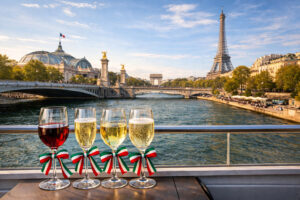
“We need to be careful with resources, the garden should be a small example of homegrown ecology; the English-style lawn is an act of selfishness because it is harmful in terms of water consumed, treatments needed, and hours of mowing. Let gardens grow Italian-style. Let’s use Mediterranean scrub plants, in the garden you cannot go against the nature of the places”. Thus landscape architect Paolo Pejrone, guest of honor at the “Radicepura Garden Festival”, announced the new “Call for Ideas 2023” for “The Garden of Plants”, edition No. 4 of the Mediterranean Landscape Biennial dedicated to garden design, in Giarre from May 7 to December 3, which will be inaugurated with one of his new garden projects. Interviewed by WineNews, one of the greatest landscape architects of our time had reiterated how “the fight against climate change must be done with much more skill, intelligence and seriousness, and it is up to us to do it each in our own small way. In the wine territories, a return to biodiversity should be encouraged: in a country of rules, sometimes even abstruse ones, when someone makes a vineyard why not ask him to also plant a piece of forest?”.
Pejrone has always been a promoter and advocate of a “messy” garden capable of growing strong, autonomously and spontaneously, a place of respect and care, as well as hospitable as well told in the volume “A Simple Garden. Stories of happy welcoming and harmonious coexistence” (Einaudi). “When we talk about a garden, we are talking about a living, growing, rapidly changing entity; there is nothing worse, in fact, than a motionless garden”, explains the landscape architect. “We have been accustomed to a bourgeois stereotype that has accompanied us for almost two centuries, the English garden, with organized but free spaces. We have grown up with this idea of green, which, however, costs in terms of the sacrifices we ask of our neighbors”.
“Having Paolo Pejrone as a teacher and guest of the next edition makes me very proud, we are happy at Radicepura to be able to give a home to one of his projects because he has always been a supporter of a vision, as he defines it, of “good garden sense” that today we call ecological, a garden that speaks of places, of happy cohabitations and processes of adaptation, in short, a garden that tells about life. Putting plants back at the center means going to look for the profound meaning of this life”, explains Mario Faro, president of the Radicepura Foundation, which promotes with Piante Fara, the first international festival dedicated to garden design and landscape architecture in the Mediterranean at Radicepura, the Botanical Park in Giarre, Catania, between Etna and the Ionian Sea, with gardens designed by internationally renowned landscape architects and works of art.
“The theme we are proposing this year focuses attention on the botanical element: no longer a corollary or mere decoration, but a starting point and professional inspiration. Designers, regardless of their education, will be called upon to grapple with a botany for landscape architects, well-declined and elegant projects that can demonstrate the benefits of a quality artistic garden that is modern, functional, poetic and serene. This is intended to foster debate around a different style of garden that can promote a conscious belonging to the natural world, gardens in which a sincere relationship with plants is enacted on a daily basis”, concludes Antonio Perazzi, artistic director of the Festival.
With this in mind, “Radicepura Garden Festival” has launched the “Call for Ideas 2023”, inviting students, landscape architects, agronomists, garden designers, botanists, nurserymen, urban planners, engineers, artists, students, curators, and anyone who has the skills to design and implement a garden. Gardens that should be a celebration of biodiversity, the natural landscape and the Mediterranean man-made landscape. And the diversity of climatic zones in the Mediterranean and the complex cultural vicissitudes of the area offer, echoing Pejrone’s philosophy of respecting the nature of places, a wide range of creative ideas.
Copyright © 2000/2026
Contatti: info@winenews.it
Seguici anche su Twitter: @WineNewsIt
Seguici anche su Facebook: @winenewsit
Questo articolo è tratto dall'archivio di WineNews - Tutti i diritti riservati - Copyright © 2000/2026